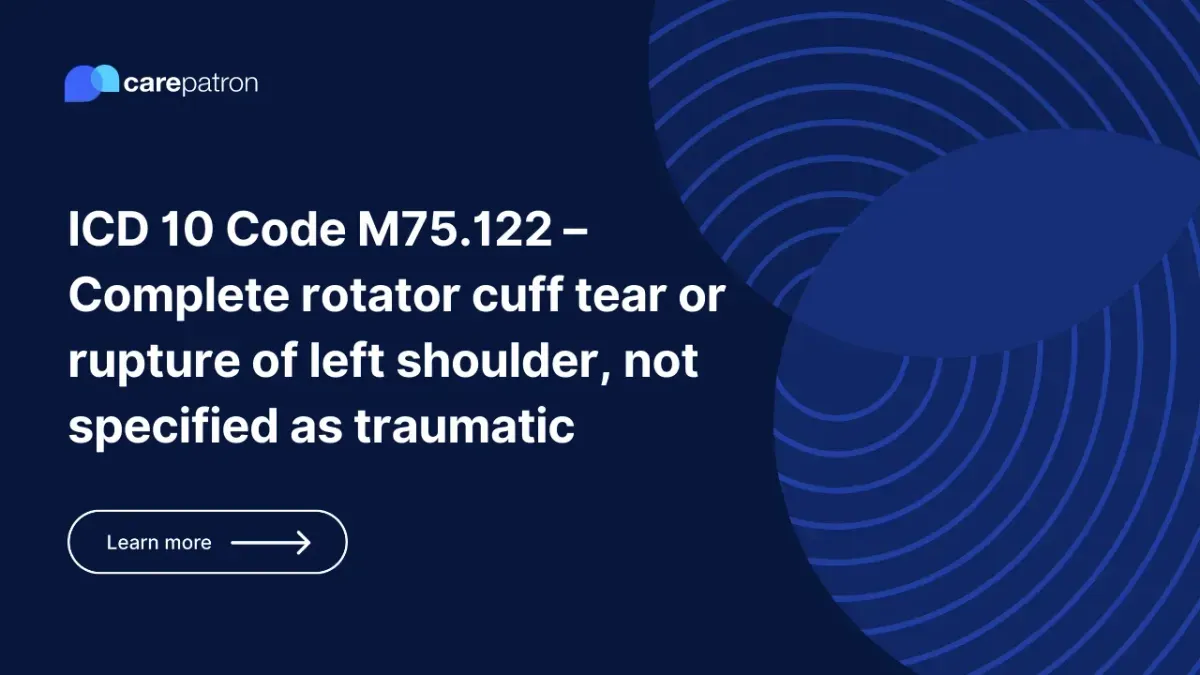
M75.122 – Complete rotator cuff tear or rupture of left shoulder, not specified as traumatic
Learn about the M75.122 ICD-10-CM code, covering complete rotator cuff tear or rupture of left shoulder, not specified as traumatic.
Use Code
Commonly asked questions
Use this diagnosis code when a patient presents with a complete tear or rupture of the left shoulder's rotator cuff, which isn't attributed to a specific traumatic event.
Treatment usually involves rest, physical therapy, anti-inflammatory medication, and surgical intervention may be required in more severe cases.
The M75.122 diagnosis code represents a complete non-traumatic tear or rupture of the rotator cuff in the left shoulder.
EHR and practice management software
Get started for free
*No credit card required
Free
$0/usd
Unlimited clients
Telehealth
1GB of storage
Client portal text
Automated billing and online payments
